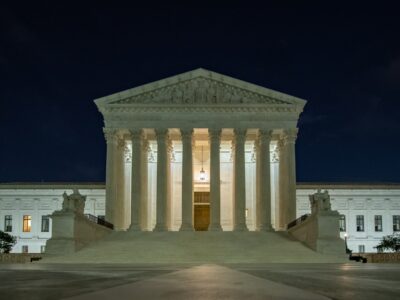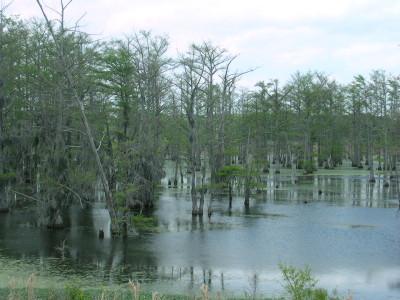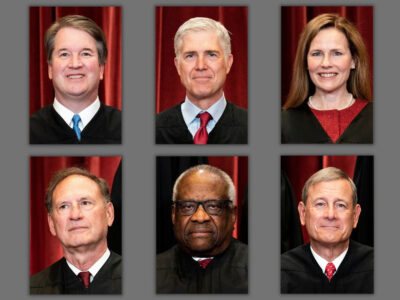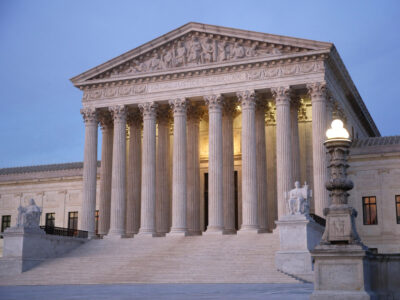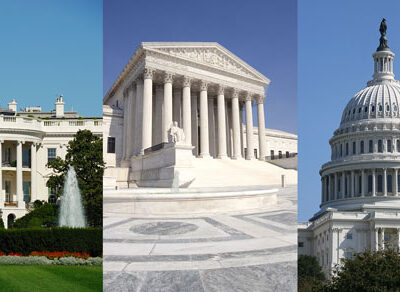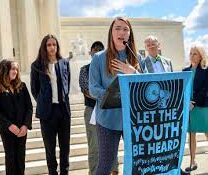Supreme Court
The Supreme Court & Interstate Pollution
It was puzzling that the Court agreed to hear the case. How has it ruled? And why?
Months ago, the Supreme Court agreed to hear an “emergency” request to stay EPA’s new rule regulating interstate air pollution. Like most observers, I was puzzled that the Court was bothering with the case before the D.C. Circuit even had a chance to consider the merits of the challenges. Months later, the Court has finally …
Continue reading “The Supreme Court & Interstate Pollution”
CONTINUE READINGHillary Clinton, Climate Change, and the ‘Sliding Doors’ of History
Here’s what could have happened instead of Trump’s crusade against climate action, if Clinton had squeaked out a victory in 2016.
If Hillary Clinton had won, we would be much further along today in the battle to cut carbon emissions and control climate change. Instead, Trump was a climate disaster. The bottom line: Elections do matter. Not just for politicians but for all of us.
CONTINUE READINGBig Oil Runs to the Supreme Court
Oil and gas companies want the justices to take up Honolulu’s climate liability case because this type of litigation is starting to gain strength.
The oil industry and its allies are attempting a full-court press to convince the Supreme Court justices they should shield them from climate liability lawsuits brought by cities and states throughout the U.S—and that they should do so now, before they face any court trials over climate-related damages. This unusual full-court press comes in the …
Continue reading “Big Oil Runs to the Supreme Court”
CONTINUE READINGThe Supreme Court’s Top-10 Environmental Law Decisions
If these decisions had come out differently, environmental law would look very different than it does today.
Here’s what you really need to know about the Supreme Court’s rulings on environmental law — including its recent trend toward weakening environmental protection.
CONTINUE READINGTemporary Takings and the Adaptation Dilemma
Current law penalizes adaptation measures because of the risk of takings liability.
Is it unconstitutional for the government to build a levee that reduces the risk of urban flooding but diverts the water to nearby farmlands? The answer could be yes, unless the government pays for flood easements on the rural lands. But if the government doesn’t build the levee, it faces no liability from the urban …
Continue reading “Temporary Takings and the Adaptation Dilemma”
CONTINUE READINGDon’t Count Your Judicial Vultures Before They Hatch
The conservative Supreme Court majority may turn out as bad as we fear. Or maybe not.
It’s not hard to imagine the conservative super-majority pursuing its campaign against regulatory agencies like vultures picking over the bones of environmental law. That’s certainly possible – vulture eggs do, after all, generally hatch into vultures. But it’s not by any means a done deal. There are multiple pathways the Court could take – none …
Continue reading “Don’t Count Your Judicial Vultures Before They Hatch”
CONTINUE READINGInterstate Pollution and the Supreme Court’s “Shadow Docket”
The Court considers whether to stay an EPA plan in light of changed circumstances.
Later this month, the Supreme Court will hear oral argument about whether to stay a plan issued by EPA to limit upwind states from creating ozone pollution that impacts other states. As I wrote before the Court decided to hear the arguments, the issues here seem less than earthshaking, and for that matter, less than …
Continue reading “Interstate Pollution and the Supreme Court’s “Shadow Docket””
CONTINUE READINGPower Play: The Effects of Overruling Chevron
Who will win and who will lose if Chevron is overruled?
Next week, the Supreme Court will hear oral arguments about whether to overrule the Chevron doctrine. That doctrine allows administrative agencies that implement statutes to resolve ambiguities in those statutes. Overruling the doctrine would shift that power to courts. Institutionally, then, judges would be the big winners, with more sway over how laws are implemented. …
Continue reading “Power Play: The Effects of Overruling Chevron”
CONTINUE READINGThe Children’s Crusade
The latest climate lawsuit is well intended, but it’s almost certain to lose and could do serious harm.
The Children’s Trust has filed another lawsuit, one that gives me serious qualms. I know their hearts are in the right place, but I wish they had thought twice about filing this case. I struggle to find any benefit from the litigation. It has no apparent chance of success. Worse, it disparages people in the …
Continue reading “The Children’s Crusade”
CONTINUE READINGThe Mystery of the Missing Stay Order
Why is the Supreme Court waiting for weeks to dispose of a demand for extraordinary intervention in a routine situation?
The steel industry applied for Supreme Court intervention on what they claimed was an urgent issue of vast national importance. Chief Justice Roberts requested an immediate government response. That was six weeks ago. Since then . . . crickets. No doubt you’re on the edge of your seat, wondering about the impending crisis facing the …
Continue reading “The Mystery of the Missing Stay Order”
CONTINUE READING





